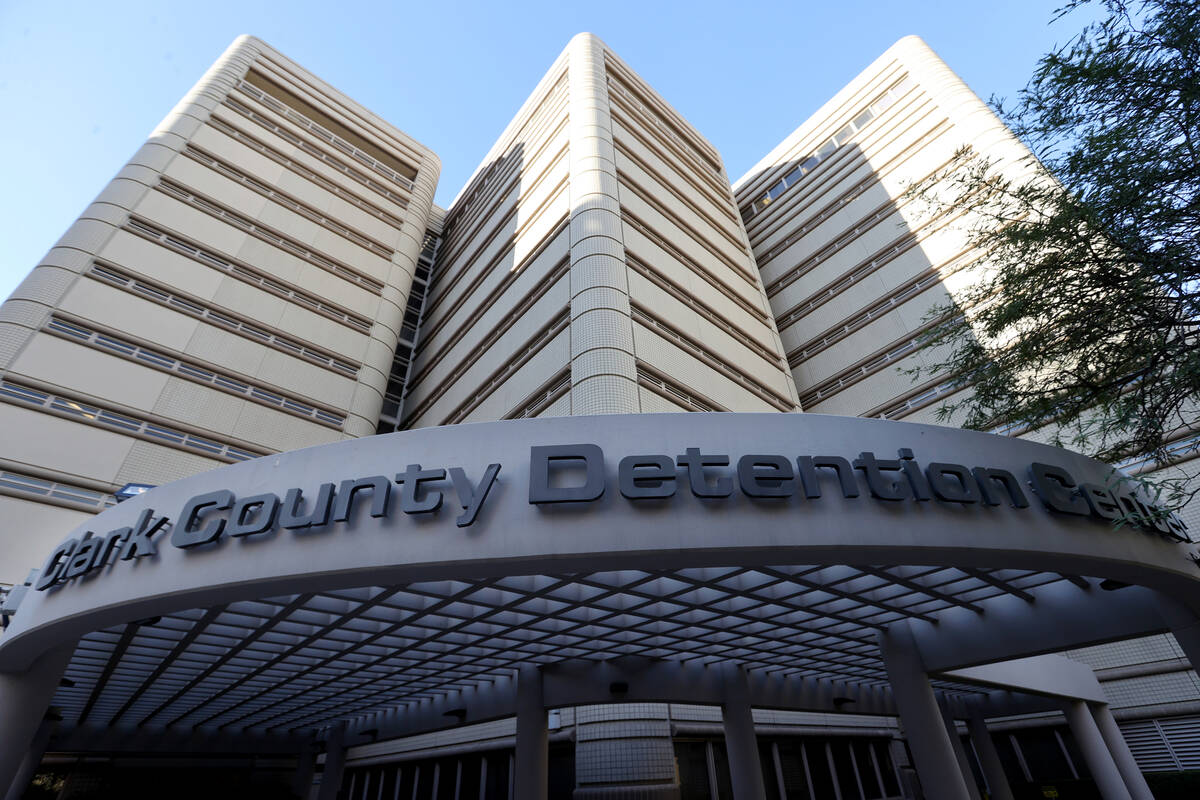ACLU asks DOJ to investigate treatment of deaf inmates at county jail
The American Civil Liberties Union of Nevada has filed a complaint with the Department of Justice requesting an investigation into the Clark County Detention Center’s treatment of deaf inmates.
According to the complaint, the Metropolitan Police Department, which operates the jail in downtown Las Vegas, has violated the Americans with Disabilities Act by denying deaf inmates access to American Sign Language interpreters and up-to-date technology to make calls.
“What we’re looking at here is basically a complete failure to provide the services that the jail knows it’s required to provide under the ADA,” ACLU senior staff attorney Christopher Peterson told the Las Vegas Review-Journal on Tuesday.
On Wednesday, Metro spokesman Larry Hadfield said the department intends to investigate the allegations brought forth by the ACLU.
“We take the care and custody of all inmates at CCDC seriously,” Hadfield said in an emailed statement.
The ACLU is representing two men who have said they were not given interpreters during medical appointments and during the booking process when they were first brought into the jail.
Peterson said access to interpreters is vital for inmates communicating complex legal or medical information.
“One of our clients made multiple, documented requests for an interpreter, all of which were denied,” Peterson wrote in the complaint. “In his case, this denial resulted in him being misdiagnosed by CCDC psychiatric staff.”
The jail also has required inmates to pay for their own pen and paper to communicate.
Writing information in English is similar to communicating in a second language for deaf inmates, because American Sign Language has its own rules and grammar, Peterson said.
One of the ACLU’s clients, whom Peterson declined to name, had to receive health information at the beginning of the COVID-19 pandemic from another inmate who wrote it down, since corrections officers did not provide any written information, Peterson said.
One of the deaf inmates could not participate in group therapy sessions or religious services at the jail because his requests for an interpreter went unanswered, according to the complaint.
“You’re basically putting this person on a deserted island, even as they’re surrounded by people,” Peterson said. “It’s hard to fathom how terrible that is, as a hearing person.”
The department already uses American Sign Language interpreters when patrol officers request them to talk to someone in the field.
Peterson said that while the ACLU believes the jail should provide in-person interpreters, there are services for someone to interpret through video calls.
Deaf inmates are not given proper notice of audible alerts like fire alarms because they do not come with a visual cue such as a flashing light, the complaint alleges.
The complaint also calls into question the jail’s use of Teletypewriter phones for deaf inmates. The device allows a deaf person to type out a message, and an operator relays the message to someone on the other end of the line, either verbally or by using American Sign Language through a video call. The operator then will type out the other person’s response to send to the inmate.
According to the complaint, the Teletypewriter phone technology is 60 years old and prone to failures and delays in communication, especially because calls from inmates are limited to 15 minutes.
Meanwhile, jails and prisons in other states have transitioned to video calls for deaf inmates, which federal courts have determined do not pose a security risk for correctional centers, Peterson said.
Deaf inmates must ask to use the Teletypewriter phones, while other inmates in general population can access phones at any time, the complaint states.
It is unclear how long a potential DOJ investigation would take, and the ACLU still could file lawsuits to address the problem, Peterson said. But the agency felt that the treatment deaf inmates face inside the jail warranted a look from a federal agency.
“We’re not just trying to solve this problem for the people we’re representing,” Peterson said. “We want to make sure there’s justice for all of the people who pass through those doors who did not get the services they needed.”
Contact Katelyn Newberg at knewberg@reviewjournal.com or 702-383-0240. Follow @k_newberg on Twitter.























